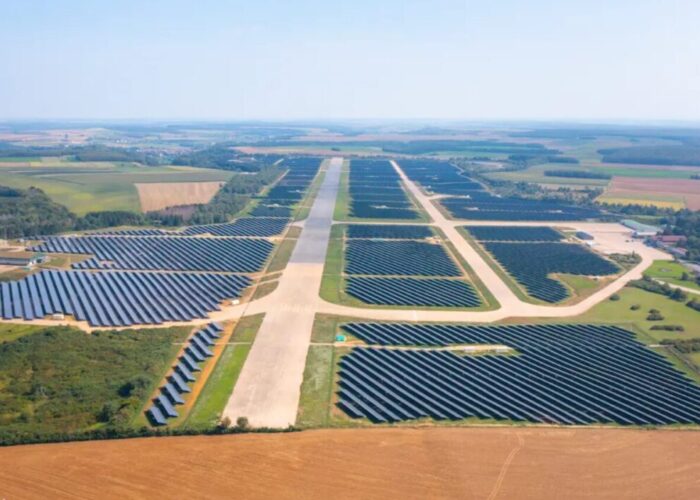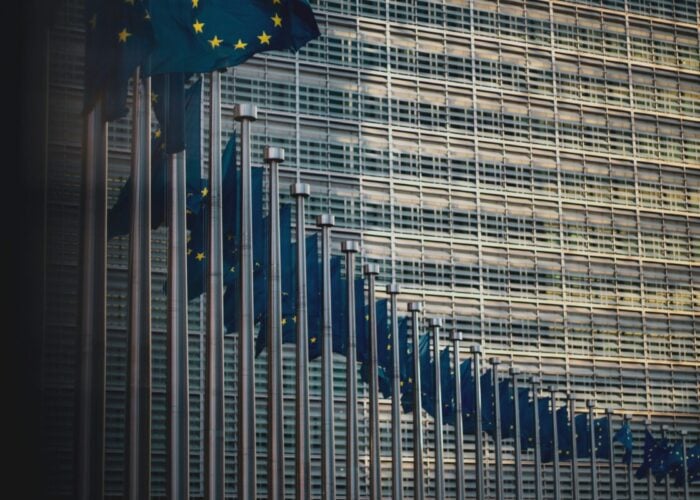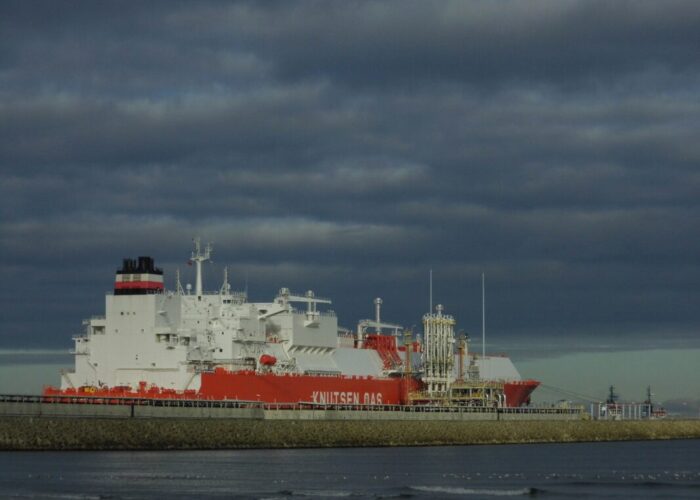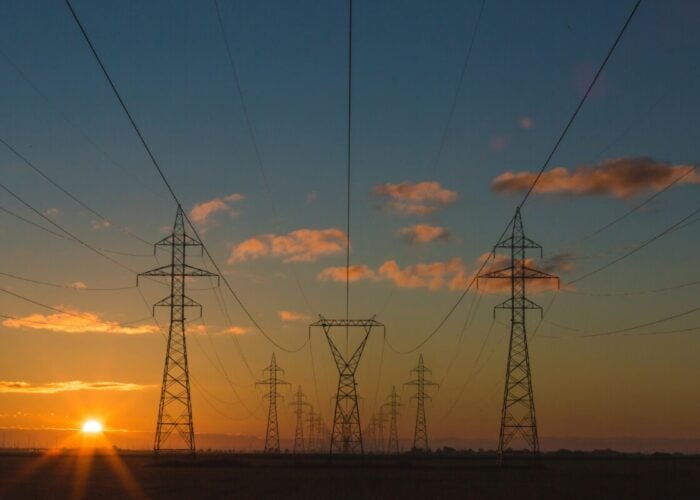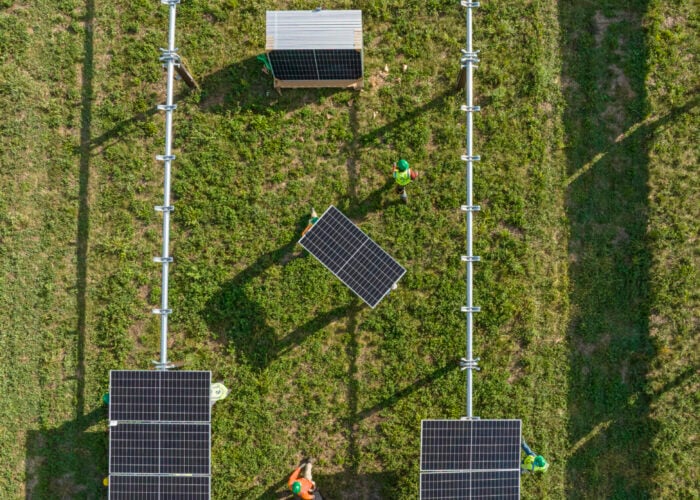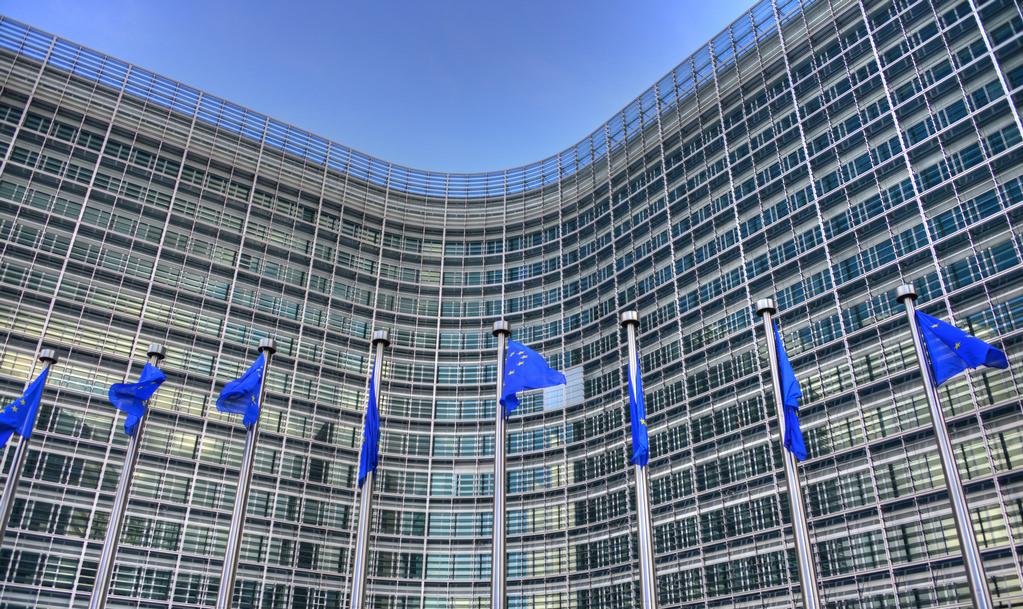
The European Council (EC) yesterday reached an agreement on a revision to its Renewable Energy Directive (RED) as part of its ‘Fit for 55’ package that has increased its renewables targets and called for accelerated permitting for clean energy projects.
The EC agreed to set a new binding EU-wide target of 40% of energy coming from renewable sources in the overall energy mix by 2030, up from the previous 32% target. Energy production and use account for 75% of the EU’s emissions, the EC said.
Try Premium for just $1
- Full premium access for the first month at only $1
- Converts to an annual rate after 30 days unless cancelled
- Cancel anytime during the trial period
Premium Benefits
- Expert industry analysis and interviews
- Digital access to PV Tech Power journal
- Exclusive event discounts
Or get the full Premium subscription right away
Or continue reading this article for free
It said yesterday’s agreement was a “significant contribution” toward achieving the EU’s overall goal of reducing net greenhouse gas emissions by at least 55% by 2030 compared to 1990 levels.
The EC called for “accelerated permitting procedures for renewable energy projects” which it said was “in line with the priorities of the REpowerEU plan” that was proposed by the EC in May.
REPowerEU, which significantly ramped up and brought forward the EU’s solar deployment targets, called for a streamlined and simplified permitting process to unlock deployment, establishing “go-to areas” for renewables that would expedite approval processes and shorten environmental assessments.
Referencing yesterday’s call for accelerated permitting, the EC said “the purpose is to fast-track the deployment of renewable energies in the context of the EU’s plan to become independent from Russian fossil fuels, after Russia’s invasion of Ukraine”, which looks set to fundamentally reshape Europe’s energy apparatus.
The EC’s commissioner for energy, Kadri Simson, said Russian gas giant Gazprom had reduced gas supply to companies in five member states, with some EU countries no longer receiving any Russian gas as she warned cuts were part of a “deliberate strategy to weaponise gas trade”.
“It is likely that things will become more challenging in the coming months,” Simson said. “Accelerating renewables deployment is the best solution, and today, with the general approach on the Renewable Energy Directive we have given a strong signal in that direction.”
Under the terms, member states will need to set more ambitious integrated national energy and climate plans (NECPs), to be updated in 2023 and 2024, to achieve the new target and reduce the bloc’s dependency on Russian gas.
“Renewables are the best way to make the EU energy independent, they are home-grown, affordable and boost the economy,” Simson tweeted.
We also reached a general approach on the Renewable Energy Directive.
— Kadri Simson (@KadriSimson) June 27, 2022
Together with the #EED, it sends a clear message that we stay the course for #Fitfor55. #Renewables are the best way to make #EU energy independent, they are home-grown, affordable & boost the economy. #TTE https://t.co/OmWM13xLqN
The EC also agreed on a number of other targets in the fields of transport, energy efficiency and industrial fuels such as hydrogen. It agreed that 35% of the hydrogen used in industry should come from renewable fuels of non-biological origin by 2030, rising to 50% by 2035.
“The Council and the Parliament will now enter inter-institutional negotiations to agree on the final text of the two directives,” the EC said, with the next step being a EU parliamentary vote on 13 July.

